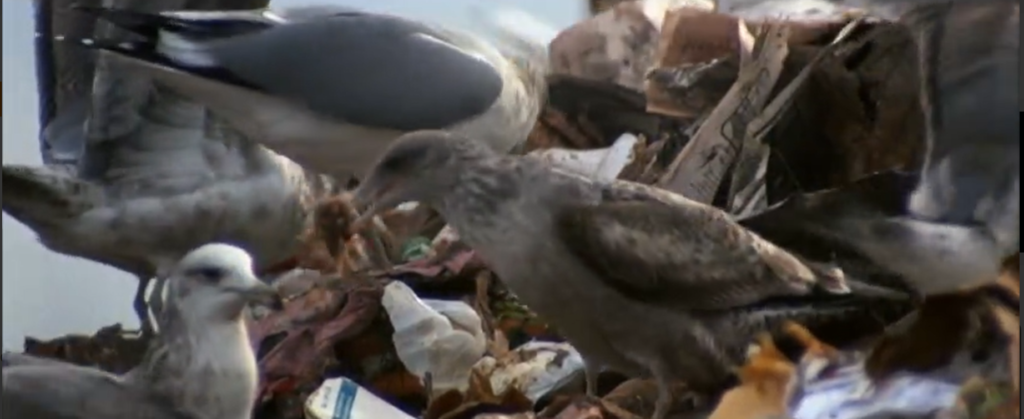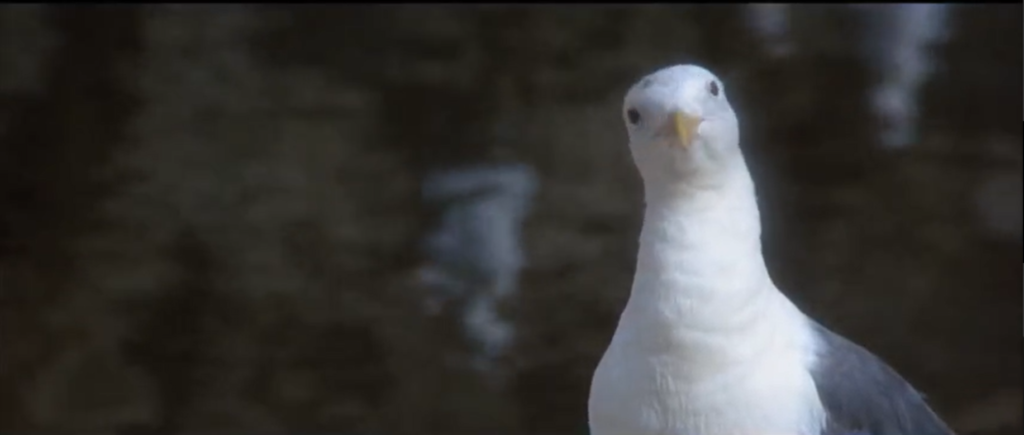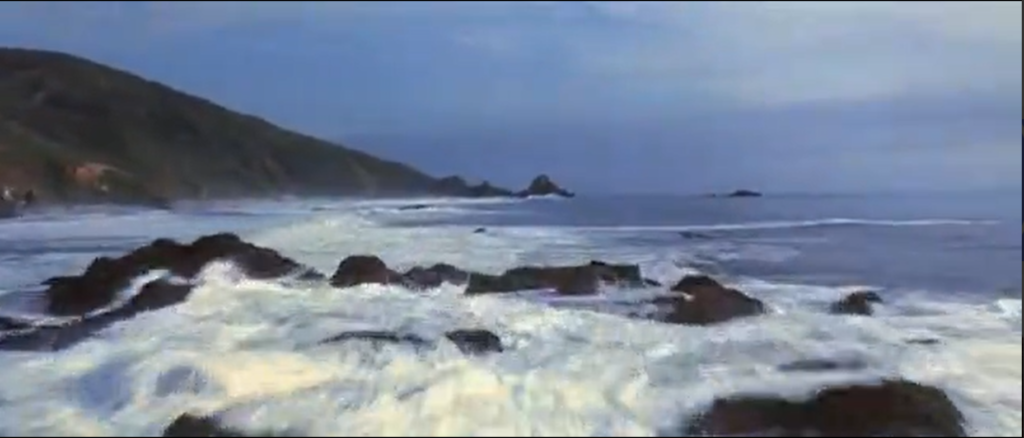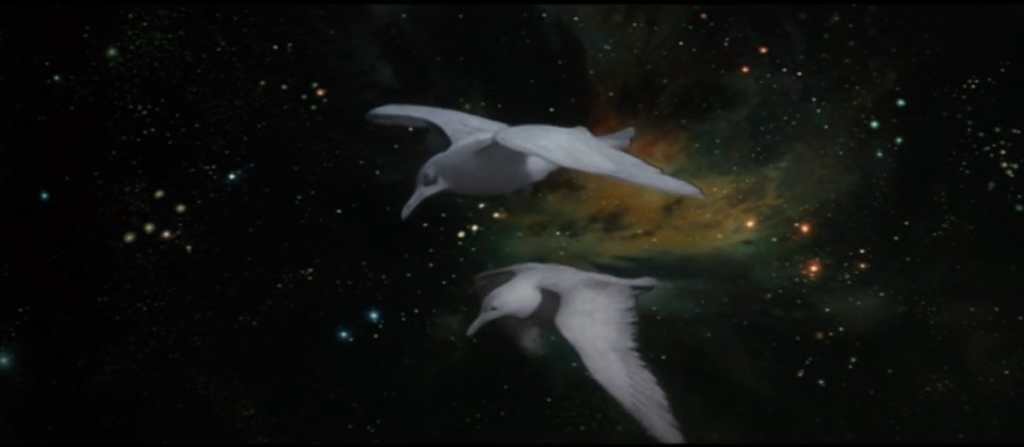|
Genres, Themes, Actors, and Directors:
- Folk Heroes
- Mentors
- Misfits
- Talking Animals
Review:
This live-action film version of Richard Bach’s bestselling parable is a curious combination of stunningly photographed nature movie and ridiculously campy new-age psychobabble. While watching shots of seagulls picking through a trash pile:

soaring through the air, or cocking their heads at each other:

it’s impossible not to imagine the MST3K crew adding their own snide commentary to the proceedings (or to provide your own). It’s full of countless quotes which are meant to be dead-serious, but instead will either make you laugh out loud or groan:
“There’s got to be more to life than fighting for some fish-head somewhere!”
“I’ve gone everywhere and everywhen I can think of.”
“I am a perfect expression of freedom, here and now.”
“I only wish to share what I’ve learned — the very simple fact that it is right for a gull to fly!”
But JLS‘s most egregious sin is its length — it runs for two long hours when it could easily have been reduced to one or less. With that said, the movie still has its hardcore devotees (see various posts on IMDb, for instance), and is an invaluable snapshot of 1970s spiritualism — after all, books don’t become major bestsellers unless they strike some kind of a chord with people. In addition, it’s full of gorgeous cinematography, and fans of Neil Diamond will doubtless enjoy hearing his heartfelt ballads.
Redeeming Qualities and Moments:
- Beautiful cinematography — though a little goes a long way–

- Some cool, stylized imagery of birds silhouetted against the sky

- Neal Diamond’s appropriately majestic score
Must See?
No, though this certifiably “bad” (albeit utterly sincere) movie is worth a look simply for the unique period in American history it represents.
Links:
|
One thought on “Jonathan Livingston Seagull (1973)”
Not a must.
How well I remember the book as a publishing phenomenon. Not that I read it, but it seems just about everybody around me was; as a teenager, I saw it on side tables constantly. (I recall paging through, which was enough.)
Was a movie inevitable? It was one thing to be ‘unfilmable’ but the thought of translating this to giant screens had to be ridiculous. But then, not so – since it was conceivable that *that* many readers might easily line up for a film.
They didn’t; the movie bombed. I saw it once on tv while living in Japan. Probably not the ‘ideal’ way to see it, considering what the film does have going for it (the striking photography). I’ve just seen it in a LBX print on youtube. (There is a ‘channel’ at youtube which, unlike tons of other channels devoted to genres/themes is devoted *only* to ‘JLS’!)
It’s bad. It’s quite bad. I’m certainly not opposed to some of its sentiment (there’s a place for inspirational material) but ‘JLS’ runs closer to tacky than life-affirming. (Probably one of the clearest – and most cynical – takes on ‘JLS’ is at IMDb, titled ‘Guano’. In it, the reviewer refers to the movie as “the little engine that could, with feathers”.)
True, it is waaay too long. There’s a seemingly endless mid-section in which absolutely nothing happens except Jonathan in flight against sky, etc. When that’s over, we realize (from the sound of his voice) that Jonathan has grown older. (I guess a title reading “X-number of years later” wouldn’t have been ‘poetic’ enough, but it sure would have saved precious time.) However, though more experienced now as a rebel, Jonathan has still not become wise enough – so we then get a huge chunk of time to soak in Jonathan’s effort to reach full understanding of life’s purpose: “to find perfection”.
Somewhere near the end, the film does begin to touch on something of a Christian theme as Jonathan is eventually referred to as “the son of The Great Gull”, but little is made of that as the film peters out in a touchy-feely way.
As I said, messages of love, kindness and making a spiritual path in life (all of which are sprinkled here) are all well and good. But they are a lot less effective when served up in a treacly manner (those Diamond songs…yikes!).
[Not that you’ll recognize them necessarily, but several big names jumped on board to supply voices: James Franciscus, Juliet Mills, Richard Crenna, Dorothy McGuire, Hal Holbrook: all directed to be overly earnest.]
All told, s-l-o-w-going and painful, as opposed to what was no doubt a leisurely and uplifting intent.